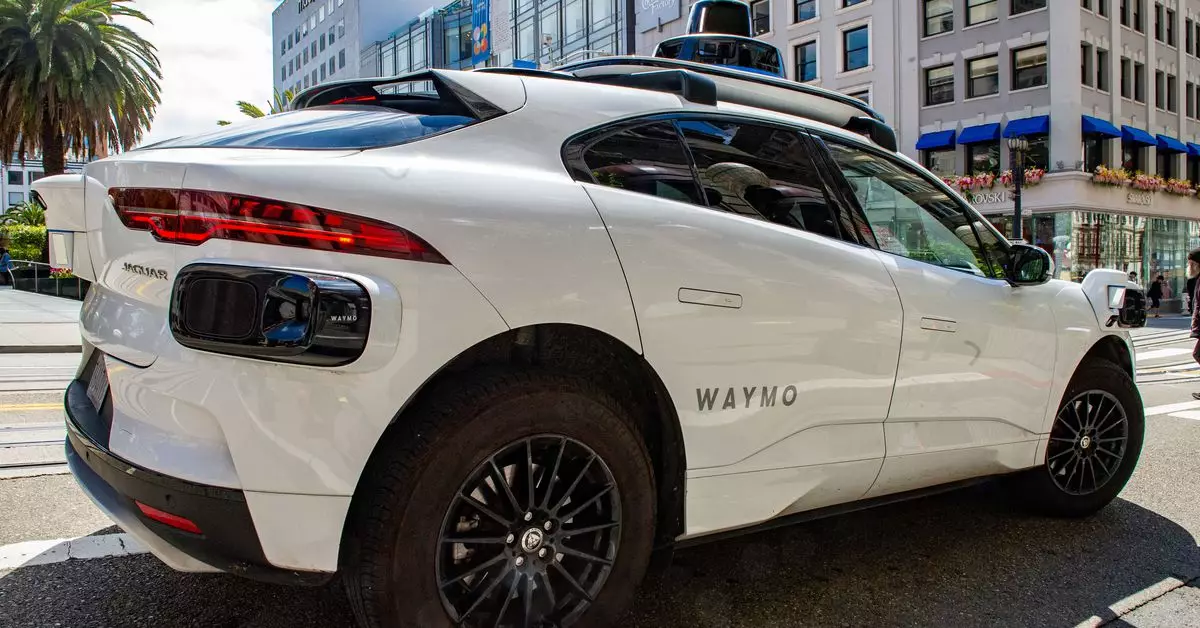In an exciting development for the international transportation landscape, Waymo, a pioneer in autonomous vehicle technology under Alphabet Inc., is set to make its debut in Tokyo, Japan. This marks a significant step as Waymo ventures outside the comfort of the United States, seeking to adapt its advanced driving systems to the unique dynamics of Japanese roadways. The decision to initiate operations in Tokyo is not merely an expansion; it embodies a thorough approach towards understanding the cultural and logistical intricacies of one of the world’s most vibrant urban environments.
With 25 vehicles scheduled to arrive in early 2025, Waymo plans to deploy these vehicles under the careful management of Nihon Kotsu, a locally renowned taxi fleet operator. This partnership is especially strategic, suggesting that Waymo seeks to learn from established local entities while also collecting vital road data. The necessity of manual driving during initial phases cannot be overstated, as it provides real-time insights into local driving norms that are critical for the eventual transition towards more autonomous operations.
Tokyo presents apt challenges for autonomous technology, characterized by a mix of narrow streets, dense traffic, and the peculiarities of left-hand driving. Waymo aims to gather mapping data to familiarize its systems with these distinct complexities. However, the journey will involve far more than simply adapting the technology; it requires a nuanced understanding of public perceptions and regulatory frameworks related to autonomous vehicles in Japan.
Waymo’s approach places emphasis on collaboration and community engagement. With comments from spokesperson Sandy Karp highlighting the company’s intention to learn and integrate into the existing transportation ecosystem, it is apparent that Waymo’s mission transcends mere commercial aspirations. By fostering relationships with local authorities and communities, Waymo not only aims to enhance its technology but also strives to become a responsible corporate citizen in a foreign land.
As Waymo cautiously enters Tokyo, it’s important to consider the contrasting approaches taken by other major players in the autonomous vehicle domain. Companies like Toyota and Nissan have opted to focus their testing efforts in markets like China, which offer different regulatory environments and consumer behaviours. This has led to a somewhat lopsided development landscape where some markets, notably China and the U.S., are far more conducive to the rapid rollout of autonomous vehicle technologies than Japan.
Waymo’s cautious optimism stands in stark contrast to the hesitant moves of many other players in the market. Following recent announcements from General Motors pivoting away from its autonomous ambitions with Cruise, Waymo’s commitment to navigating the complexities of an international expansion signals either confidence in its technological capabilities or a well-calculated risk amid a climate of tightening investment in robotics.
While Waymo’s immediate goals involve data collection and partnerships, it’s clear that its long-term vision includes the rollout of a robotaxi service which is currently blossoming within the United States. The inclusion of the GO app, a popular taxi app in Japan, hints at a potential future where autonomous vehicles become integrated into existing ride-hailing ecosystems, providing a seamless transportation experience.
But for now, all indications point towards gradual integration. Waymo vehicles will initially operate within geofenced regions of Tokyo, including bustling areas such as Shinjuku and Shibuya, ensuring safety and oversight with trained specialists onboard. This sensible approach highlights the significant emphasis placed on safety—a critical barrier to consumer acceptance of autonomous vehicles.
Waymo’s foray into Tokyo represents both an opportunity and a challenge—an opportunity to showcase its technology on a global stage and a challenge to comply with, understand, and adapt to a foreign market’s unique automotive environment. As this ambitious endeavor unfolds, the outcome will not only reflect Waymo’s capabilities but also shape the narrative around the future of autonomous vehicles in densely populated urban settings.
Ultimately, while Waymo is still in the exploratory phase, its strategy of combining technological advancement with local insights could pave the way for a meaningful integration of autonomous vehicles in international markets. As the landscape of transportation continues to evolve, Waymo’s careful navigation of these complexities will be crucial in establishing its position in the global mobility ecosystem.

